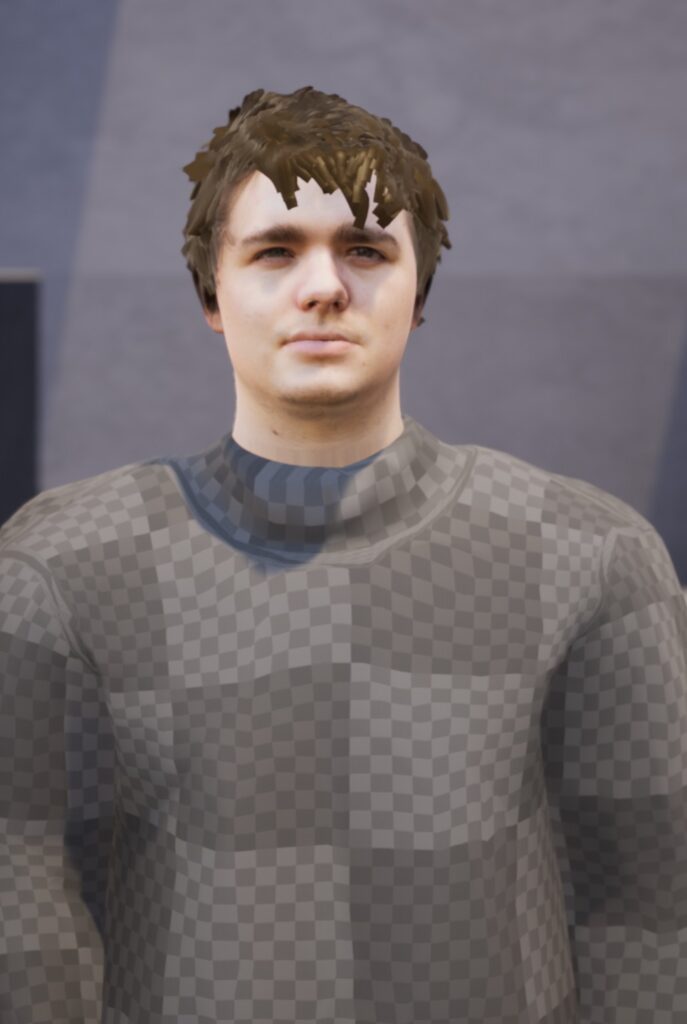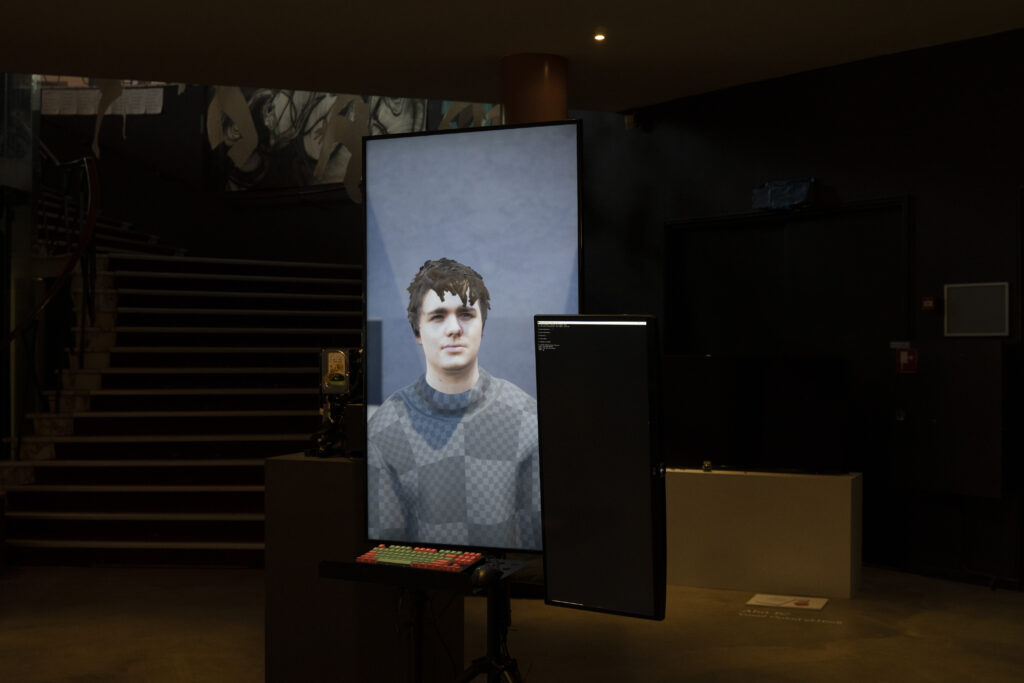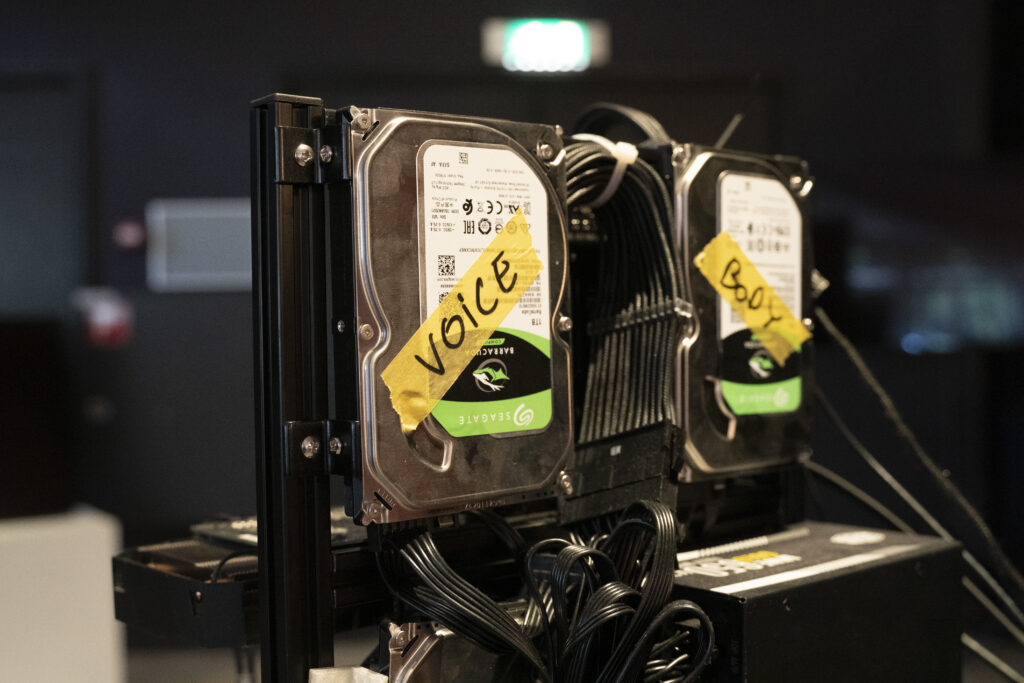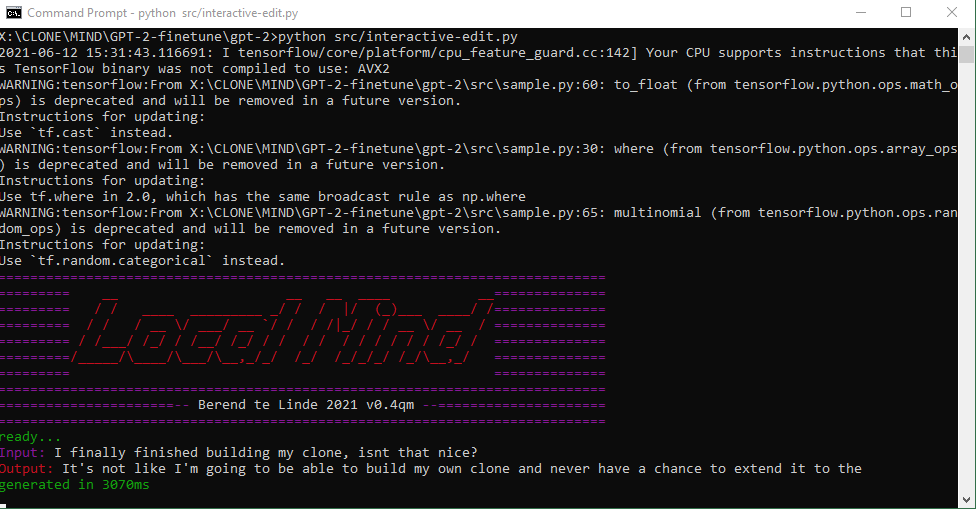2020-2021
My bachelor graduation research started looking at online behaviour. I made bots to automate our routines and I realized how incredibly easy it is to create interaction and build up a fake digital footprint. Running my script for a few days gave me around 500 twitter followers. I found this fascinating but empty at the same time. There is a big difference between interaction and interaction with meaning. But what was interesting is that it created a whole timeline of all the interactions it had. Nothing on the internet is lost. Archiving yourself has been a goal in humanity as long as we exist. The first artworks that we ever found were copies of people’s hands painted over in a cave. Tons of popular media have cloning as the main premise. So this project is my attempt to archive a version of the twenty-four year old me, a digital clone that will exist after I am gone.
The first step was to create a voice. Which I did by reading to my clone from the book Frankenstein. This was cut into small segments and I trained a neural network (tacotron2) to speak like me. After training for about a month I had a semi-realistic voice that sounded exactly like me. I did a Turing test with some people and 50 percent of the time people couldn’t differentiate the fake voice from my actual voice.
The second part that needed to happen was to create a mind. What good would a clone be if it would just repeat whatever I said. So I started collecting random thoughts that I had during the day. After a few months I had a nice database of things I could have said. Again I trained a neural network to create similar thoughts using GPT-2. GPT has a base layer of data that is based on the internet and I did not realise this at first but it greatly impacted the output I got from my clone. It said things I would never have expected and by linking them I could hear myself say things I would never say myself.
The final level of my clone was the body. It needed some kind of vessel to contain all this data. Because this has so much personal data I was quite scared to upload my clone to the cloud. So I made a standalone machine where the clone lives (pic 4). This machine will never be updated and therefore become a time capsule. This is the physical body of the clone. The digital body I made by 3d modeling a version of myself. It is completely rigged so it lip syncs to whatever it says. I even hired a virtual hairdresser to do my hair. The end result is an Frankenstein like body.
As soon as this whole system started running it quickly became quite surreal. I could type a message to myself and within a few seconds my clone would answer it. Sometimes purely nonsensical but sometimes there is a small hint of intelligence in the answers.




